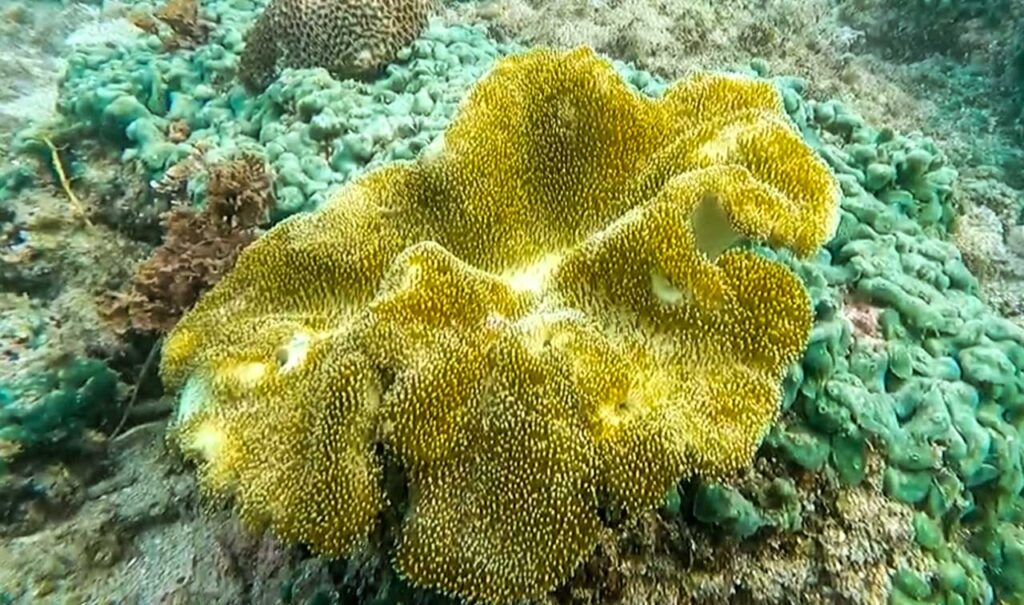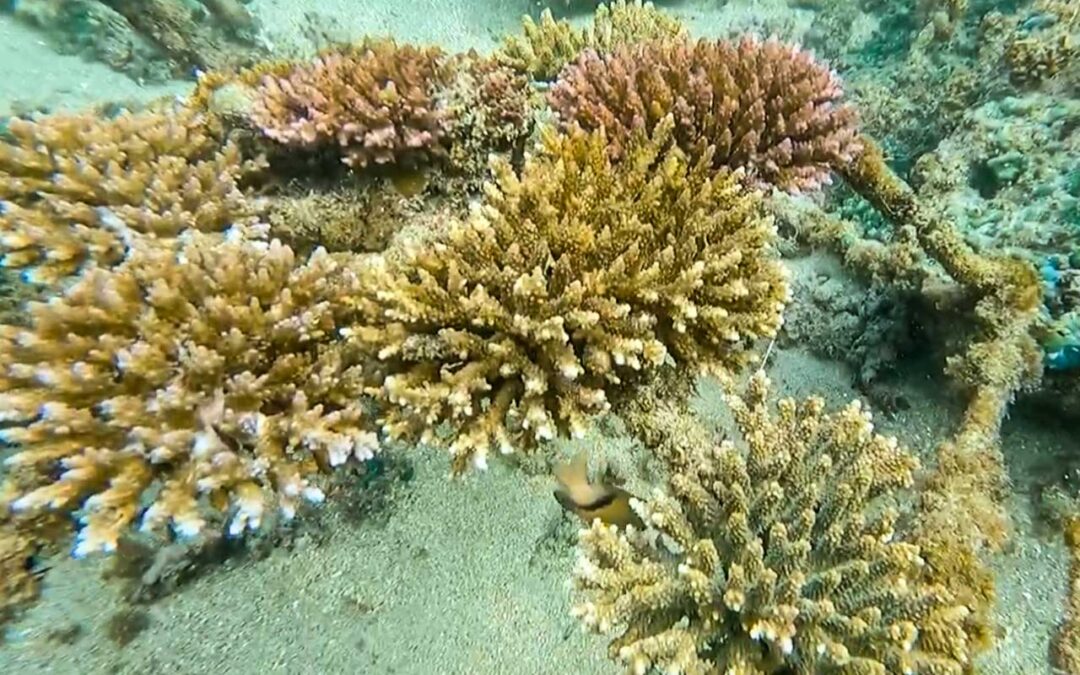Five passionate ocean warriors from the R.O.L.E. Foundation gathered on the shores of Nusa Dua on June 24 for more than just a swim—they were on an underwater mission to care for one of the most vital yet vulnerable forms of marine life: coral reefs. The team had been encouraged by one significant development—the Montipora coral fragments they had previously attached to Reef Stars had shown visible signs of growth. Many fragments had firmly anchored to the structure and had begun to spread, forming the early stages of what could become a thriving coral colony. It was a promising indication that their restoration techniques were making a difference.
Environmental Challenges Revealed!
However, beneath the good news lay deeper ecological concerns. The natural coral reefs surrounding the restoration area had continued to struggle. The team had observed a concerning overgrowth of sponges and algae dominating areas where vibrant corals once thrived.
Based on observations, the R.O.L.E. team suspected that multiple environmental factors had contributed to this imbalance:
- Increased sedimentation, likely caused by land runoff or nearby development, had settled over the coral reefs, smothering them and promoting the spread of algae and sponges.
- Excessive algae and sponge growth, while natural components of reef ecosystems, had indicated an unhealthy shift. Their dominance suggested an overabundance of nutrients in the water—a possible sign of poor water quality.
- Suboptimal water conditions had made it increasingly difficult for corals to survive and recover, mirroring challenges faced at other coral restoration sites under the R.O.L.E. Foundation’s care.
Persistence and Purpose

Despite the setbacks, the R.O.L.E. Foundation team remained unwavering in their commitment. Every maintenance was viewed as both a restoration effort and a learning opportunity. By removing aggressive algae, monitoring sponge growth, and analyzing sedimentation levels, the team had gathered valuable insights into how best to adapt their strategies.
This week’s maintenance had offered a mixed outcome: success in coral attachment and expansion, yet sobering reminders of ongoing environmental stressors. One thing, however, remained certain—the ocean needed more support than ever, and the R.O.L.E. Foundation was prepared to lead that effort, one Reef Star at a time.


Recent Comments